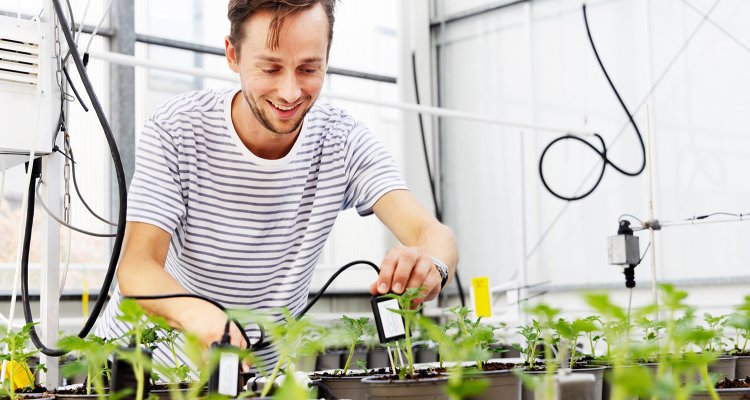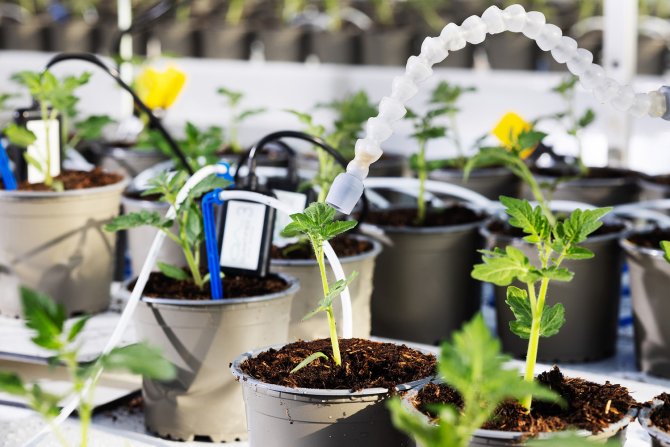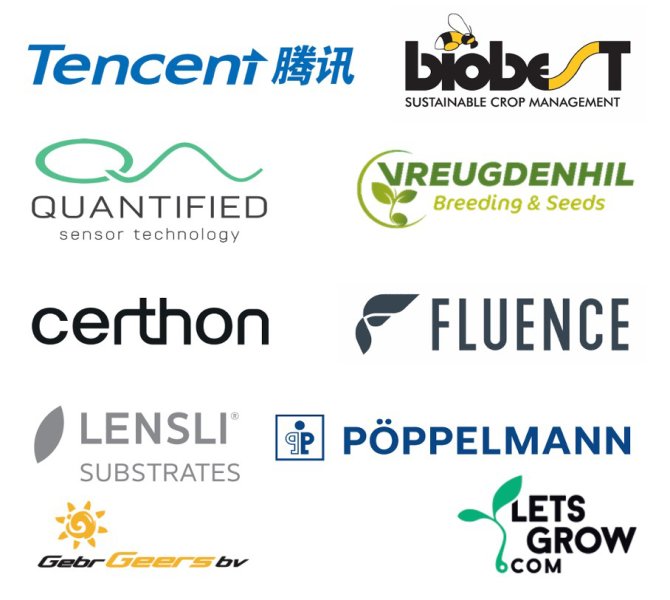
News
Teams from around the world tackle autonomous dwarf tomato cultivation in Bleiswijk
Excitement is mounting in the greenhouses of Wageningen University & Research in Bleiswijk: five teams from across the globe have embarked on the next phase of the Autonomous Greenhouse Challenge. The task? To cultivate dwarf tomatoes completely autonomously, without human intervention.
In the first phase of the competition, the teams worked hard on developing advanced algorithms. Now, they get to apply that knowledge practically in their own greenhouse compartment in Bleiswijk. Using sensors and artificial intelligence, the teams meticulously control temperature, light, humidity, and CO2 to create the optimal growth conditions for the tomato plants. All of this is done entirely automatically and as sustainably as possible. The ultimate goal is to achieve the highest net profit in a sustainable manner. Extra points can be earned by making the right decisions regarding biological pest control, based on digital information from the greenhouse. The team with the most points will be crowned the winner of the Autonomous Greenhouse Challenge 2024.
The future of horticulture
Whether it is growing flowers, vegetables, or fruits, autonomous greenhouses are expected to play an increasingly important role in future production. Higher yields can be achieved with the use of fewer resources such as water and energy. In an era where sustainability is key, these innovations can make a significant difference. Moreover, automation in greenhouse cultivation can help reduce labour costs and address staff shortages. ‘The techniques needed to enable autonomous cultivation on a larger scale already exist,’ says researcher and Challenge organiser Silke Hemming. ‘But there isn’t always enough training data to build algorithms that are robust and scalable. There’s also the question of who is responsible if something goes wrong in a commercially run greenhouse. Is it the grower or the person who built the algorithms?’
The participants in the fourth Autonomous Greenhouse Challenge do not need to worry about answering that question. The annual event plays an important role in fostering knowledge and innovation. By bringing together international teams, new ideas and revolutionary technologies are born. The Autonomous Greenhouse Challenge not only strengthens the Netherlands' position as a leader in agricultural innovation but also offers inspiration and practical insights for growers worldwide.
Major challenges for the teams
According to Hemming, fully autonomous cultivation of dwarf tomatoes is not easy. The teams must optimise all different cultivation factors and also consider the financial aspects. ‘There are always many uncertainties in crop cultivation. Besides pests and diseases, you also have to think about unexpected crop reactions and uncertainties in weather forecasts,’ says Hemming. ‘The teams' algorithms need to be able to cope with these and that’s very complex. Unexpected events such as sensor failures can also present additional challenges.’
Introducing the teams
This autumn, five teams, totalling 60 participants, will compete for the win. A quarter of the participants are women, the teams represent 10 different nationalities, and a third of the participants are students, many of whom are PhD students. Other participants are employees of companies and research institutions.
These are the teams:
- IDEAS - Zhejiang University, China
- MuGrow – TU Delft, Gardin, Rijk Zwaan, Wageningen University
- AgriFusion – Croft, Korea University of Technology and Education, Seoul National University, IMEC, GreenBites, Harvard University
- Team Trigger – Grit, Daeyoung, Bigwave, Ridder, Seoul National University, Keimyung University
- Tomatonuts -Wageningen University, China Agricultural University, Jingwa Agricultural Science and Technology Innovation Centre, Golden Scorpion

Harvesting dwarf tomatoes in December
The participating teams in the Autonomous Greenhouse Challenge are expected to harvest their dwarf tomatoes by December. On 16 January 2025, the winning team will be announced. Until then, the teams will continue to work hard to optimise their autonomous cultivation methods and help shape the future of greenhouse horticulture. From 2 September, the challenge can be followed live via the dashboard on www.autonomousgreenhouses.com. And this year, everyone can join the challenge from home! Play our challenging serious game 'KasSim The Game' and compete against players worldwide! Will you be the best digital grower?
Partners and sponsors
In addition to Wageningen University & Research, this event is co-organised and sponsored by Tencent, Biobest, Certhon, Fluence, Gebr. Geers, Lensli Substrates, LetsGrow.com, Quantified, Pöppelmann and Vreugdenhil Breeding & Seeds.
